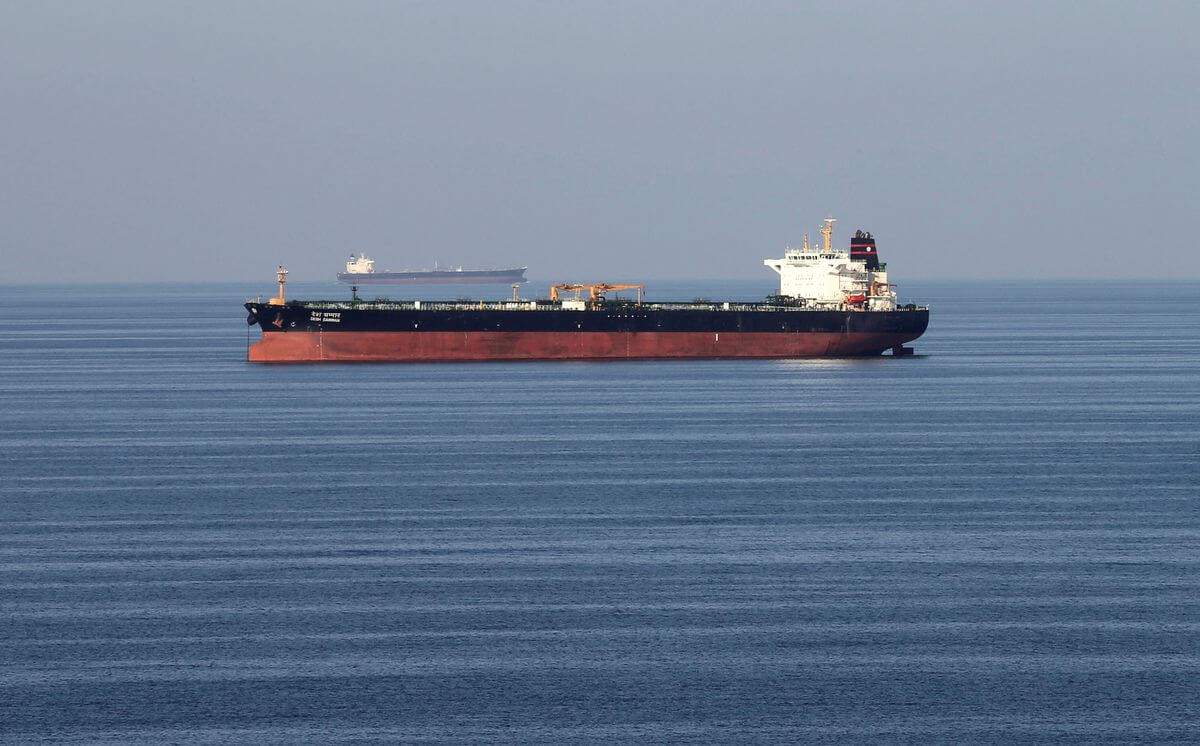Iran has opened its first oil terminal in the Gulf of Oman to allow Iranian tankers to bypass the strategic Strait of Hormuz chokepoint for oil exports. The Strait has been a flashpoint of periodic confrontations between Iran’s Islamic Revolutionary Guards Corps (IRGC) and the United States (US) military.
On Thursday, outgoing Iranian President Hassan Rouhani officially launched the Jask terminal in the southern city of Bandar-e-Jask near the Gulf of Oman. The port of Jask will receive crude oil through the 1,000-kilometre Goreh-Jask pipeline, starting from Goreh in the Bushehr province. Rouhani called it the “most important and significant national plan inaugurated” during his two terms as president and said that it “is a very strong response to the conspirators, the United States and all those who are thinking about the instability of Iran’s future.” He added that despite the US-imposed sanctions, “91% of the project was carried out by Iranian technology” and called it a proud moment for the government.
The state-run Islamic Republic News Agency (IRNA) reported that the terminal could export 300,000 barrels of oil per day during its first phase and create “sustainable employment” for at least 10,000 people. Iranian oil minister Bijan Zanganeh said that over 250 companies were involved in completing the project, “which was implemented and operated under the harsh sanctions and economic war.” Moreover, National Iranian Oil Company Chief, Masoud Karbasian, announced that “operations have begun to inject oil into the 1,000km Goreh-Jask pipeline.” He added that it is “currently the largest project in Iran’s oil industry” and praised the “national determination for completing this great and strategic project.”
Furthermore, Fars News mentioned that by bypassing the Strait of Hormuz, “Iran has the opportunity to export oil with more security and more stability.” Currently, most of Iran’s oil exports pass through the narrow Strait of Hormuz in the Persian Gulf. The US Energy Information Administration calls the Strait “the world’s most important oil transit chokepoint” since its daily flow averaged around 21 million barrels per day, which is about 21% of global petroleum consumption.
The Strait of Hormuz has become the central issue in the ongoing tensions between Iran and the US. Following former US President Donald Trump’s unilateral withdrawal from the nuclear deal in 2018 and the re-imposition of sanctions on Iran, the Iranian government threatened to close the Strait, disrupting the global oil supply and significantly increasing oil prices. Iran has used its strategic advantage over the Strait as a bargaining chip. In 2011, Iran threatened to cut off access to the Strait when the Obama administration called for imposing sanctions.
Since 2018, the Strait has seen periodic clashes between the US military and the IRGC. The US has accused Iran of harassing and attacking commercial vessels passing through the Strait. Iranian and American warships also had close encounters along the narrow passage, and in 2019 tensions rose when the IRGC shot down a US drone. In May, a US Coast Guard ship fired around 30 warning shots at the IRGC speed boats coming close to American naval vessels in the Strait of Hormuz.
Despite these tensions, the current US administration led by President Joe Biden has expressed willingness to re-join the landmark 2015 nuclear accord and remove the crippling sanctions on Iran. In April, Iran and the world powers began negotiations in Vienna to restore the Joint Comprehensive Plan of Action. The talks have not resulted in a deal so far. The seventh round of discussions is expected to take place by August.
Iran Opens Oil Terminal in Gulf of Oman as Alternative to Strait of Hormuz
Iran has opened the Goreh-Jask oil terminal in the Gulf of Oman to allow Iranian tankers to bypass the strategic Strait of Hormuz chokepoint, which sees periodic clashes between Iran and the US.
July 23, 2021

Oil tankers pass through the Strait of Hormuz, December 21, 2018. SOURCE: HAMAD MOHAMMED/REUTERS
